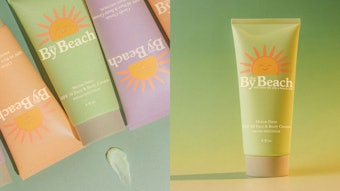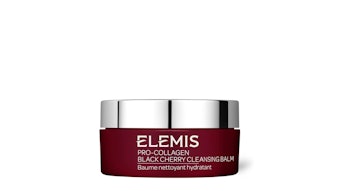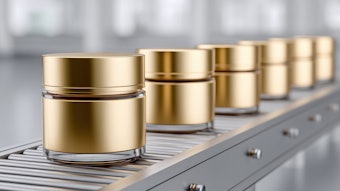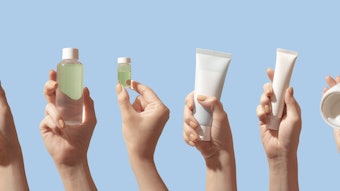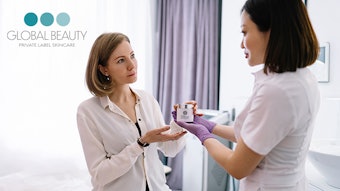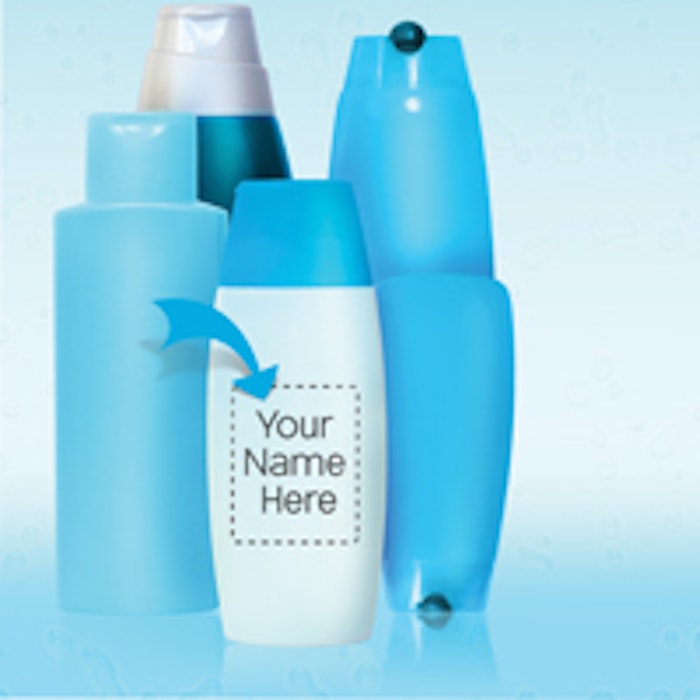
Those in the skin care industry—like every other industry—are keenly aware of the economic downturn. It’s no secret that clients are coming in less frequently and buying fewer products than they have in the past, which is evidence of their personal struggles with finances. Of course, this trickles down to the spa owners who are also trying to make ends meet. But two of the main problems spa owners are currently facing can possibly be addressed by considering offering a private label line of products: bringing costs down and standing out from the competition.
Stand out from the crowd
One of the most game-changing benefits to adding a private label line to your business is standing out from the crowd, especially these days when many lines can not only be found in other spas, but also in prestige department stores and beauty mega stores. “For me, private label is the way to go,” says Nina Ummel, owner of Ummelina International Day Spa, with locations in Seattle and Yakima, Washington. “It allows you to have your name on the products and if clients like them, they are going to come back to you because they can’t get those products anywhere else.”
According to Ellen Clark, founder of private label company Global Beauty, this type of benefit is called “brand equity.” “It is a way for clients to take a little bit of the spa experience home with them and that appeals to many spa owners,” she explains. Maria Stadler, vice president—marketing of YOUR NAME Professional Brands, another private label company, also emphasizes the important role branding plays in a business’ success, especially during the recession. “Private label gives your clients the opportunity to purchase unique products that enhance their experiences at your place of business,” she says.
Meet your clients’ needs
“When spa owners purchase a product line, it is so important that the first thing they have to ask themselves is: ‘What do I really believe in when it comes to skin care?’ ” Ummel explains. Ultimately, the decision comes down to carefully considering how offering a private label line will benefit your business. After you have decided to begin offering private label products in your spa, the next step is identifying what your clients desire in skin care and how to best meet their needs. Svetlana Sharapova, owner of A-Skin Care Salon in Arlington, Massachusetts, believes that a private label product is only as good as the professional reputation attached to the name on the bottle, and the prime benefit of offering private label is the trust that is encouraged to your spa’s name and brand. Sharapova chooses products that treat her clients’ specific skin conditions and incorporates them into her private label line. Creating relationships with her clients means that she will also incorporate other brands into her product mix if they have a distinct benefit that she can’t deliver in-house.
After identifying the needs of your clients, the next step is finding a supplier that will help you meet those needs. There are many out there, so it is important to know what you want and find a supplier that can offer solutions. According to Vonda Simon, founder and president of SeaCliff Beauty Packaging & Laboratories Inc., one of the benefits of working with private label suppliers is that many formulas have already gone through product testing. “This saves time from having to choose your active ingredients and sift through marketing data from raw material suppliers that is often hard to understand,” she says. “The products have already been tried and tested.”
She also notes that many formulas can be easily tweaked to give them your own signature twist. “For example, depending on the product, a preferred scent may be added,” says Simon. Another way to make private label products stand out is to select packaging that truly represents your spa and your mission, and many private label suppliers offer this service, as well.
Sales and marketing
Beyond branding, private label skin care and cosmetics also offer another economy-specific benefit—they can be extremely profitable. In fact, the recession spurred Rebecca James Gadberry, co-CEO and chairman of YG Labōratories to do a total review of the products and programs the company offered to spas. Ultimately, it was discovered that clients who take advantage of private label programs earned 10–30% more than those who didn’t.
Private label products offered at Ummel’s spas can carry a markup of 300–500%. Even with this, she is able to offer a mid-priced range of product to clients. But clients often aren’t the only ones who save by buying private label. Spa owners cut costs by avoiding the expense of custom formulas and high product minimums that often come with branded products. “This allows spa owners to rotate in new products that help attract consumers and test what products are successful,” says Simon.
Clark warns, however, that just because it says your name on the bottle doesn’t make private label products easier to sell than branded products. “It is best to try all the products that are of interest to you and make sure you really love the products, and the company you work with appreciates your business and will help you,” says Clark.
One of the key aspects to a product line that is successful at retail is the marketing support it receives. “Some private label companies offer additional services, such as labeling, marketing support and training, so you will have to determine where you need the assistance the most,” says Clark.
If you believe that your brand requires a marketing story, make sure the supplier can help you develop this. “Some private label companies specialize in science-based products and others offer more natural products. It’s important to carry your brand message throughout, from your products to your marketing story, they should be consistent and represent your unique niche,” explains Simon. Another important aspect of private label marketing to consider, according to Simon, is tailoring your products for use in your spa’s treatments to help build the sale. “For example, create a pre- or post-treatment regimen that complements the service. The client can purchase the products as part of the treatment for at-home use in between visits,” she says, and recommends choosing a supplier that provides backbar sizes.
Reach new heights
During the search for the right private label provider, be sure to inquire about what is included and consider any additional responsibilities that may fall on your shoulders. See Private Label Checklist for the details to consider when choosing a line. Also, keep in mind that the more you buy, the cheaper private label products become. Unlike patented lines that leave little wiggle room for price negotiation, most private label suppliers have set prices that decrease as quantities increase. With this added incentive to grow your business and a line that is all your own—at least according to the label—you could take your spa to new heights of success.

